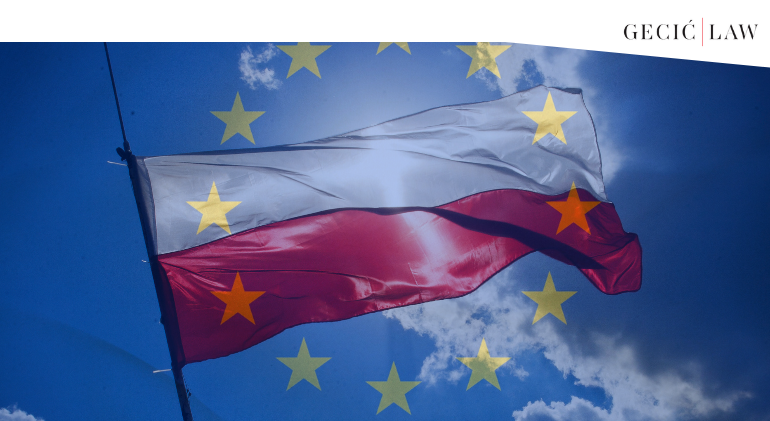

The battle for supremacy i.e. primacy between Member State and European Union (“EU”) law is in full swing, with the prospect of even more trouble. In late October, the EU’s highest court (“CJEU”) issued a landmark daily fine to Poland in the amount of EUR 1 million for failing to comply with CJEU’s order. This tremendous fine is the biggest to date and may very well be a warning to any other Member State that might try to question the primacy of EU law.
Polish judicial system reforms are what triggered the dispute between the EU and Poland. In March, Polish Prime Minister Mateusz Morawiecki brought a case before his country’s Constitutional Tribunal asking which has primacy, EU or national law? The move set off a plethora of events and controversy lasting to this day. Brussels argues that the judicial overhaul is just an attempt to undermine the independence of courts. Meanwhile, Warsaw sees the EU’s actions as meddling in a Member State’s internal affairs.
Legally speaking, the EU claims that the primacy of EU law is the bedrock of European integration and should not be infringed. However, Poland deems that EU treaties shouldn’t meddle with the judicial systems of Member States, and that any attack on the Polish constitution as the country’s highest legal act diminishes Poland’s sovereignty.
Both the EU and Poland also addressed the political ramifications of the case. Brussels has stressed the political background of the issue from the beginning and is pinning it to the right-wing Polish government. The Polish government strongly denounces these allegations and tries to paint the picture as a fight for sovereignty and the right to bring about a judicial overhaul. Things got so heated at one point that the spokesperson of the ruling party even threatened with a Polexit if things don’t pan out as Poland wishes.
The proceedings just won’t step away from the spotlight. Activists organized demonstrations that required police intervention. Proof that tensions were high can also be seen in the fact that the Polish Constitutional Tribunal’s ruling was expected in April, but it was postponed to the second half of September. The postponement of the ruling only amplified the significance of the EU’s fine on Poland.
When it finally ruled on the matter, the Polish Constitutional Tribunal stated that Articles 1, 2, 4.3, and 19 of the Treaty on the Functioning of the European Union cannot prevail over the Polish Constitution. This landmark ruling fully endorsed the leading party’s stance on EU law primacy and brought the nation a step closer to a “legal” Polexit. The EU stated that the Polish court is “a tool for legalizing the illegal activities of the authorities”. Nevertheless, the Polish administration stayed adamant that it is acting within its rights.
The long-term consequences of the fallout in this matter are hard to predict. Both sides of the debate are trying to recruit followers for their cause. Nevertheless, the tensions persist, and it seems as though neither side will budge. What will happen after the dust settles is still unknown, but one thing is certain: the once unchallenged position of EU law is continually put under scrutiny. Only time will tell whether this will be a win for Eurosceptics or just a slight nuisance to further European integration. Are we seeing the end of an ever closer Union?